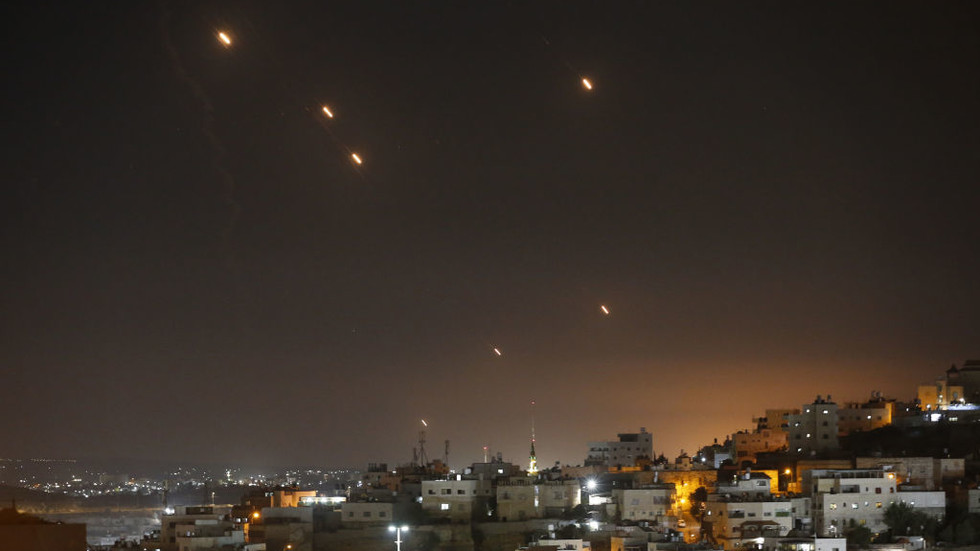On Saturday, the Israel Defense Forces (IDF) announced its plans to execute a “serious and significant” strike against Iran, following a recent series of aggressive actions between the two nations. This escalation was triggered by an Iranian missile attack that targeted Israeli military bases, launching approximately 200 ballistic missiles, allegedly in retaliation to Israeli bombardments in Beirut, which resulted in the death of prominent Hezbollah leader Hassan Nasrallah and his top commanders. While the IDF claimed that the Iranian missile onslaught was largely ineffective, independent video footage indicated that several missiles penetrated Israel’s Iron Dome air defense system, hitting the Nevatim and Tel Nof airbases. Tehran asserted that the strike at Nevatim caused substantial losses, including the destruction of numerous Israeli F-35 fighter jets. In response, Israeli Prime Minister Benjamin Netanyahu characterized Iran’s actions as a “big mistake” that would have repercussions.
In light of potential Israeli retaliation, there is widespread speculation regarding the targets for Israeli strikes. The focus is expected to be on Iranian nuclear facilities or oil and gas infrastructure. However, US President Joe Biden has publicly advised against such measures, cautioning Israel in a statement on Wednesday that he would not support an attack on Tehran’s nuclear sites. Further complicating this situation, on Friday, Biden warned Israeli leaders to consider alternatives to striking Iranian oil fields, emphasizing the potential global economic ramifications of such actions. With imminent US presidential elections, any military action targeting Iranian oil production could significantly increase oil prices, adversely affecting consumer gasoline prices in the United States, making it a politically sensitive area with potential consequences for Biden’s administration.
Despite these warnings from the United States, the Israeli leadership’s past actions suggest a degree of autonomy in their military decision-making. Israel has undertaken significant military operations in Lebanon, including the destruction of Hezbollah communication networks and the assassination of Nasrallah, often without prior consultation with American officials. Reports indicate that Netanyahu initially accepted a ceasefire proposed by the US and France but opted to proceed with airstrikes instead, underscoring a possible disregard for American counsel in critical wartime decisions. This pattern of behavior raises questions about the extent to which Israel might consider US advice as a factor in their strategic calculations, particularly in light of the ongoing tensions.
The conflict narrative extends beyond these immediate military responses as Israel has been engaged in a prolonged campaign against Hamas in Gaza, which has intensified in recent months. The Israeli government’s escalation of military operations against Hezbollah in Lebanon is part of this broader confrontation, leading to significant bloodshed. Reports from the Israeli Health Ministry indicate that over 2,000 individuals, including 127 children, have perished due to the hostilities as Israeli forces have executed three weeks of aerial bombardments paired with four days of ground operations in Lebanon. The scale of these operations demonstrates the severity of the situation and the willingness of the Israeli government to pursue military objectives aggressively amid rising regional tensions.
Iran, through its Islamic Revolutionary Guard Corps, has also issued strong warnings in response to Israeli actions, asserting that any retaliation will provoke an even “more destructive” response from their side. This statement indicates Iran’s desire to deter further Israeli aggression while simultaneously navigating the complexities and potential dangers of regional warfare. Iranian officials express a preference to avoid a direct confrontation yet insist on a robust deterrent capacity against Israeli military actions. This position articulates the broader considerations at play in the ongoing conflict, where both sides are weighing their military strategies against possible repercussions and larger geopolitical consequences.
In conclusion, the situation reflects a critical juncture in the ongoing hostilities between Israel and Iran, characterized by escalating military engagements and the looming threat of broader regional warfare. While the IDF prepares for a potential significant strike against Iran, the cautionary stance from the United States underscores the complexity of these international relations and the intricate balance of power in the Middle East. The stakes are particularly high, with the potential for significant economic implications tied to decisions about military targets and actions. As both nations navigate this precarious landscape, the potential for escalation remains a profound concern, echoing through diplomatic dialogues and military strategies alike.

